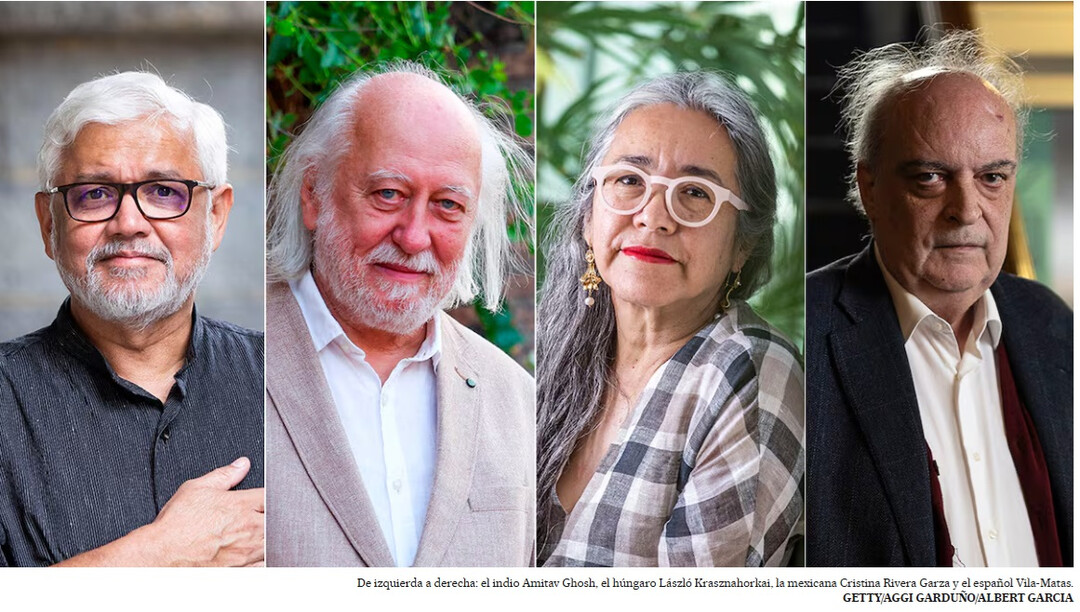
The annual tradition returns as the Swedish Academy prepares to announce the Nobel Prize in Literature winner this Thursday. The world—readers, booksellers, translators, editors, and writers—is once again engaged in the yearly speculation over who will claim this year's honor. Following South Korea's Han Kang becoming the first Asian woman to win the prize last year, attention is focused on which writer will capture the world's literary spotlight this time.
Prediction Rankings from Betting Sites
The only public 'thermometer' for Nobel Prize predictions comes from the odds offered by international gambling sites. According to Nicer Odds, which aggregates data from various betting sites, the current most likely candidate is Amitav Ghosh from India.
However, on another prominent betting site, Ladbrokes, the Chinese writer Can Xue and the Hungarian author László Krasznahorkai are in the lead. Trailing them, Spanish-language authors, Cristina Rivera Garza of Mexico and Enrique Vila-Matas of Spain, are both forming the upper tier of contenders.
Also being discussed as strong possibilities are Australia's Gerald Murnane, Romania's Mircea Cărtărescu, and America's Thomas Pynchon. In addition, perennial nominees like Japan's Haruki Murakami, British-Indian author Salman Rushdie, Canadian poet Ann Carson, and Antigua-born Jamaica Kincaid are well-positioned. Margaret Atwood, Lyudmila Ulitskaya, and Ersi Sotiropoulos are also names drawing significant attention.
Fitzcarraldo Editions: The 'Prophet' of the Nobel Prize
The British publishing house Fitzcarraldo Editions has been dubbed the 'Oracle of the Nobel Prize' after correctly preceding four Nobel winners in just over a decade since its founding. They had either published or prominently featured the works of Svetlana Alexievich (2015), Olga Tokarczuk (2018), Annie Ernaux (2022), and Jon Fosse (2023) prior to their wins.
While Fitzcarraldo's success is sometimes dismissed as luck, analysis suggests it's the result of carefully monitoring translations and reader reception across various countries. Indeed, France, with 16 past Nobel laureates, is a nation whose literary trends are sometimes viewed as a 'crystal ball' for the award.
Language, Geography, and Political Consideration: Hopes for the Spanish-Speaking World
Beyond literary merit, geographical and political considerations are discussed every year in the selection of the Nobel laureate. Syrian poet Adonis is a perennial strong candidate within this geopolitical context.
Expectations are particularly high for a Spanish-language writer. It has been 15 years since Mario Vargas Llosa won in 2010, marking a long wait for the Spanish-speaking literary world, which has seen past glories with writers like Octavio Paz (1990) and Camilo José Cela (1989). If Amitav Ghosh were to win, he would be only the second Indian laureate after Rabindranath Tagore (1913). Australia's Gerald Murnane is the only Australian on the list, and despite being frequently named as a top contender, his continued lack of a win has given him the image of an 'eternal nominee.'
The Deliberation Process and Unpredictability
The Swedish Academy emphasizes that the Nobel Prize in Literature is purely a celebration of literary achievement. The current judging committee is led by Chairman Anders Olsson, 76, and includes Ellen Mattson, Anne Sverd, Steve Sem-Sandberg, Anna-Karin Palm, and Permanent Secretary Mats Malm. Following the controversy surrounding the 2018 award, the committee has strived for greater transparency and fairness, and the current panel is gender-balanced. This balance has also been maintained in the list of laureates over the past decade.
Last year's winner, Han Kang, along with Olga Tokarczuk, proved that world recognition is attainable without being in the ranks of older, established authors.
The committee reviewed nominated works from June to the end of August before entering serious deliberations in September. While their discussions will remain sealed for 50 years under the rules, a life-changing phone call will be made in Stockholm this Thursday. As the unpredictable history of the Nobel Prize shows, the possibility of a 'surprise winner' overturning all these predictions and bets remains.
[Copyright (c) Global Economic Times. All Rights Reserved.]




























